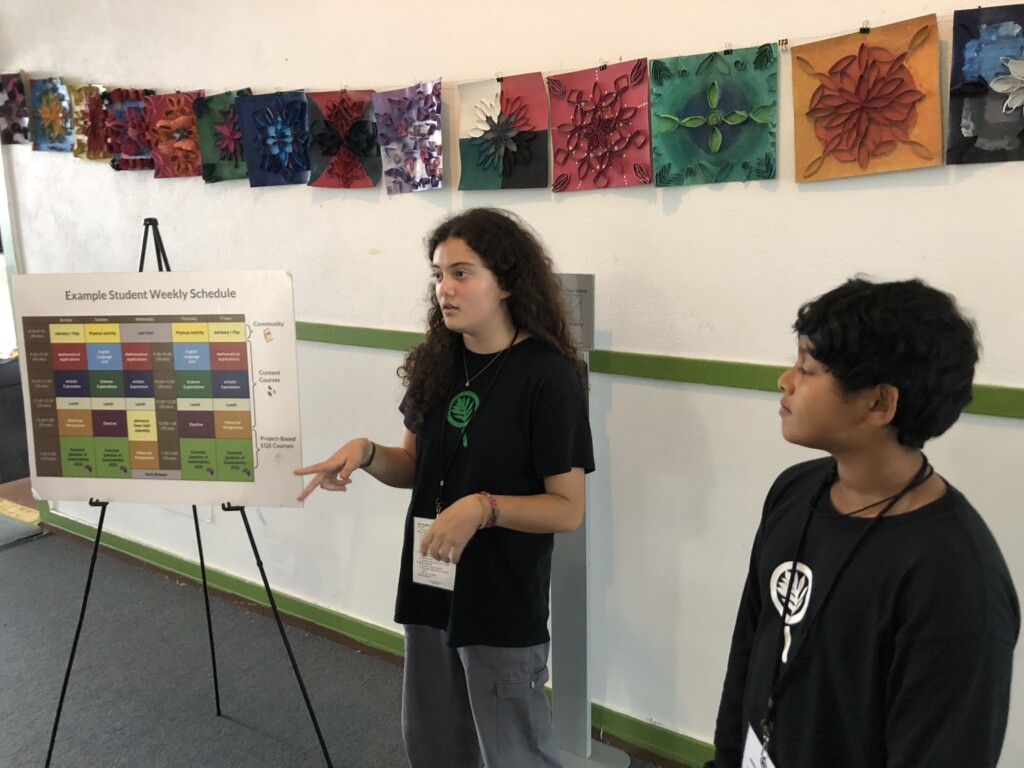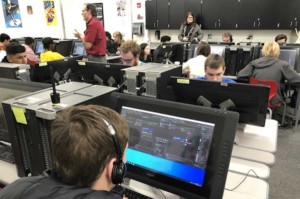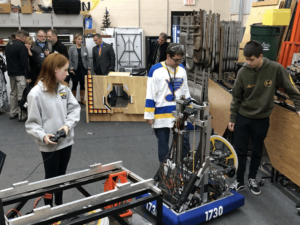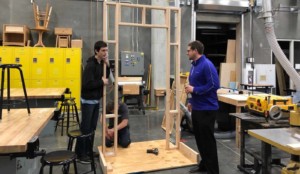Values-Driven Learning in Hawai’i Helps Learners Find What They Are SEEQing
Key Points
-
Educators need to be empowered to think differently about schooling and engaging young people.
-
How you spend your time is how you enact your values.

By: Bill Nicely and Josh Reppun
If you were allowed to reimagine what education could be through the creation of a completely new school, what would it look like? What would be its overarching purpose? How would students engage and what student outcomes would you insist on? These are enormous questions that not many are willing to think seriously about, much less put into action. But, in 2012, Buffy Cushman-Patz did just that. What she and other trusted advisors landed on was SEEQS: the School for Examining Essential Questions of Sustainability, located in Honolulu, Hawaiʻi.
Cushman-Patz and her four co-collaborators, including Josh Reppun (host of the What School Could Be Podcast), were once fellow teachers in a traditional independent school, frustrated by the structures that limited their ability to teach in a more innovative way, one that would allow more freedom in how required learning standards could be achieved. They began to imagine how they could design and co-teach courses that were interdisciplinary, integrating both science and history and helping students recognize the similarities between scientific thinking and historical thinking.

Years later, long after they went their separate ways, Josh got a call from Cushman-Patz. She had a request: help design an innovative charter school. After a year spent interviewing education thought leaders, they collaborated with Mark Hines, Carole Ota, and Raleigh Werberger to develop a progressive school model deeply rooted in an interdisciplinary, project-based approach centered on examining Essential Questions of Sustainability (EQS).
The Power of Essential Questions
Each SEEQS course circles an essential question cleverly aligned to state-mandated course content standards. Students navigate these questions as a class while exercising agency in the process. Essential questions are seemingly short and simple, yet in reality, they are large, broad, and complex questions with no readily apparent answer. It is for this reason that they are ideal for the kind of student inquiry that leads to deep learning. By framing learning through essential questions, the learning experiences can be co-authored while enabling teachers to scaffold learning standards around them.
On our recent student ambassador-led tour of SEEQS (a middle school whose charter includes the eventual development of a high school), a high degree of student agency was evident from our student ambassadors: 8th-grade student, Sophia, and 7th-grade student, Avyay. Sophia explained that her class’s EQS for the semester was: How can service lead to change? In the process of exploring the impact of service, students engaged in a variety of service opportunities. Sophia described to us the experiences she had both investigating with her class what service is all about and what it was like to engage in community service projects. When asked how participating in service activities for the benefit of others changed who she is as a person, she shared that she could more easily empathize with others, and, without provocation, she said she would continue engaging in service work for the rest of her life.

Throughout our hour-long tour, we asked a hundred questions of Sophia and Avyay. Both fielded them as if they were veteran shortstops for the Kansas City Royals, something we talked about in the parking lot after the tour. They fully understand the DNA of their school.
Avyay’s class was investigating the EQS: How can we develop a reliance on clean energy? Avyay and a classmate broke from the rest of the class to research and prototype the feasibility of electric-powered flights for transporting goods. Doing this is a great example of how SEEQS’s teachers allow for flexibility in learning to fit students’ particular interests. The first few days of each semester when new EQS are introduced, students participate in a project-based learning launch event known as EQS Camp where they spend time researching their topic and visiting important off-site locations learning from experts and engaging in field work.
This year’s semester-long Essential Questions explored by students are listed below. As you read through them, take note how each question topic aligns well with things residents of the Hawaiian islands are thinking about and issues they are grappling with.
- EQS Cultural Preservation: How can preserving Hawaiian culture benefit society?
- EQS Kai (the sea): How can restoration solutions help mitigate the impacts of invasive species?
- EQS Waste and Consumerism: How do humans impact the waste cycle?
- EQS Forests: What are the dynamics of the forest system and how do humans fit in?
- EQS Responsible Tourism: How can tourism sustain Hawai’i’s land, people, and culture?
- EQS Clean Energy: How can clean energy be used in responsible ways?
Values and Sustainability
Regardless of the question investigated by students, each has been created to result in students also developing Essential Skills. These Essential Skills are all covered under the SEEQS Core Value of “Living Sustainably.” For this reason, they are known as Sustainability Skills but are associated with every aspect of learning and life.
- Reasoning Analytically
- Managing Effectively
- Communicating Powerfully
- Collaborating Productively
- Thinking Systemically
Cushman-Patz is known for talking about the following: “How you spend your time is how you enact your values” and the labeling of these skills as “sustainability skills” certainly lives into the values of SEEQS. She also notes that students leaving SEEQS most often head to a traditional high school and have a different set of challenges.
While these core skills make for lifelong real-world learners, we would be remiss if we didn’t ask about state standardized test scores. After all, charter schools like SEEQS are not exempt from this measure of student performance. In data as recent as 2022 (as the COVID crisis receded), SEEQS’s students met proficiency in percentage far above the state average; 24% above the average in English Language Arts: 15% above the average in Math and 26% above the average in Science.
When viewing the school’s weekly schedule, the afternoon EQS project-based courses are taught collaboratively by three teachers (two content teachers and one student support teacher). In this way, teachers become adept at subject-area content integration and therefore unafraid to collaborate across the rest of the schedule. This kind of instruction must be planned deliberately for it to be systemic.
The law, passed by Hawaii’s legislature in 1994, that established a system of charter schools said that they should act as “demonstration schools.” Hawaii’s charter schools now account for 37 of the state’s nearly 300 public schools. They operate with more autonomy than district schools. As demonstration schools, it is explicit and implicit that each of these schools explore education innovation, creativity, and imagination. They are, under the law, directed to explore what school could be. SEEQS, under Cushman-Patz’s guidance, has done this to a remarkable extent. So much so that when folks both in Hawai’i and outside the islands ask to see great examples of student-focused innovation in education, SEEQS is most often the school of choice.
Bill Nicely is an educator-in-residence for the Ewing Marion Kauffman Foundation, where he works on activities related primarily to the high school design portfolio within the Real World Learning initiative.
Josh Reppun is the host of the What School Could Be Podcast and co-founder of SEEQS.







0 Comments
Leave a Comment
Your email address will not be published. All fields are required.